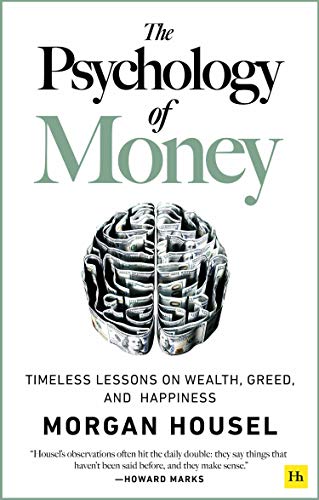
Morgan Housel’s The Psychology of Money is a rare personal finance book that cares less about spreadsheets and more about the messy human brain using them. Instead of prescribing a single perfect plan, Housel offers 19 crisp stories that show how habits, emotions, luck, and time shape our financial lives. It reads fast, sticks with you, and nudges you toward choices you can actually live with.
What the book is really about
Housel’s core argument is simple and liberating: doing well with money is mostly about behavior. People make decisions at kitchen tables, not in labs. Your upbringing, fears, ego, and incentives all play a role, so the smartest plan is the one you will stick to when markets get weird.
Across short chapters, Housel builds a framework around a few powerful ideas:
- Luck and risk are siblings. Outcomes are never only about skill. Be slow to judge others and humble about your own wins.
- Enough is a superpower. If you cannot recognize “enough,” appetite outruns satisfaction and you take risks that can erase years of progress.
- Time beats brilliance. Compounding is the quiet hero. Average decisions held for decades outpace brilliant trades you cannot stick with.
- Be unbreakable. Survival matters more than squeezing out every last basis point. Margin of safety is how you stay in the game.
- Savings > optics. Wealth is what you do not see. Savings equals income minus ego. Control of your time is the best dividend money pays.
- Tails drive reality. A handful of events produce most results. Build plans that can tolerate rare but brutal surprises.
- Reasonable beats ultra rational. The best portfolio is not the mathematically perfect one. It is the one that lets you sleep at night.
- Volatility is a fee, not a fine. Market drops are the price of admission for long term growth. Pay the fee and keep going.
- Match your time horizon. Never copy investors playing a different game with different goals.
What works so well
Housel writes like a good coach: clear, pithy, low on jargon, high on perspective. He resists one size fits all rules and instead gives you mental models you can adapt. The result is disarmingly practical. Chapters end and you want to change something small today, not overhaul your life tomorrow.
Readers who enjoyed Your Money or Your Life or A Random Walk Down Wall Street will appreciate how Housel blends psychology with plain spoken investing wisdom. The book also pairs well with a simple, low cost index strategy and an automatic savings habit. Dollar cost averaging, keeping cash buffers, and setting realistic return assumptions all flow naturally from his principles.
Where the book draws criticism
Some readers find the aphoristic style a little too tidy at times. You will not find deep technical guidance, asset location math, or tax optimization playbooks. A few anecdotes risk oversimplification, and seasoned investors may wish for more nuance about sequence risk in retirement or international diversification. Still, the point of the book is not to engineer a perfect spreadsheet. It is to help you build a durable mindset so your plan survives contact with real life.
Big takeaways you can use today
- Define your personal “enough” and write it down. Decisions get easier when the goalpost stops moving.
- Automate savings, then protect them with a margin of safety. Think job loss, medical surprises, or market bear stretches.
- Choose a reasonable plan you can follow through recessions. Simplicity wins when the world feels chaotic.
- Treat market drops as a fee for long term growth. Pre commit to staying the course.
- Guard your time. Money that buys flexibility is worth more than money that buys status.
Verdict
The Psychology of Money is not about beating the market. It is about beating the worst impulses in yourself long enough for compounding to do its quiet work. If you want a short, memorable guide that makes you wiser about money and calmer about uncertainty, this is an easy recommendation.
Buy The Psychology of Money by Morgan Housel on Amazon: https://amzn.to/3J1rnJD


